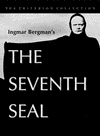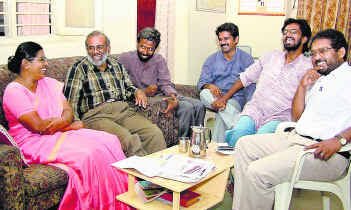Movies are being used in schools to create awareness on moral values, patriotism, and health issues. "Children of Heaven " , an Iranian Film made waves at a Coimbatore school shortly.
When Ali in the movie "Children of Heaven" enters a race just to win a pair of brand new sneakers for his sister, every student in the audience cheers him up. "That explains the power of visuals," says Pon. Chandran of Konangal Film Society, which screened the Oscar nominated Iranian film to over 600 students at Sri. Ranganathar Matric H.S. School, Kalappanaickenpalayam in Vadavalli, as part of its outreach programme.
"The language is Persian, the setting is in Tehran and some of the kids in the audience, especially the pre-KG section, cannot read the English subtitles; yet the visuals communicated effectively," he adds.
The story is simple. While at market shopping, Ali loses his sister Zohre's school shoes. He decides that his sister and he will share his sneakers till he gets a new pair for her.
Every frame in the movie sends across a message to children. "Take for instance, extra-curricular activities. It is not just about playing chess or cricket, but also helping out parents. During weekends, Ali joins his father in gardening, so that they can make some extra money. So is the girl Zohre, who helps her mother with household chores and even takes care of the baby, the third child," Chandran adds.
A welcome change
The Film Society believes introducing such films to school students is the key to bringing about societal change.
"It exposes them to a new world of alternate cinema, a welcome change from the kind of commercial films they get to watch now. It initiates a search in their minds and moulds them as better individuals," he adds.
K. Thanalakshmi, member of Konangal, says that taking world-class cinema to children is important to instilling values of sensitivity in them.
"Now children get an overdose of fast-paced movies," she adds.
The concluding race scene in the movie is catchy.
"To win the pair of sneakers, Ali must come third, but he comes first. Instead of enjoying success, he cries because his sister will not get the shoes," Chandran adds.
Subtle end
However, a quick shot of their father's bicycle at the end of the movie shows what appears to be the pink shoes Zohre had wanted, implying she got the shoes after all.
"Our students and the faculty enjoyed the screening. We want to make it a regular extra-curricular activity and create awareness on moral values, patriotism, service, society and health issues among students," says V.M. Velayutham, secretary, Ranganathar School.
Surya Nagappan, librarian and a member of Konangal, says the screening has created interest among students to explore meaningful cinema in a big way.
Courtesy The Hindu - Young World dated 26.01.2007









